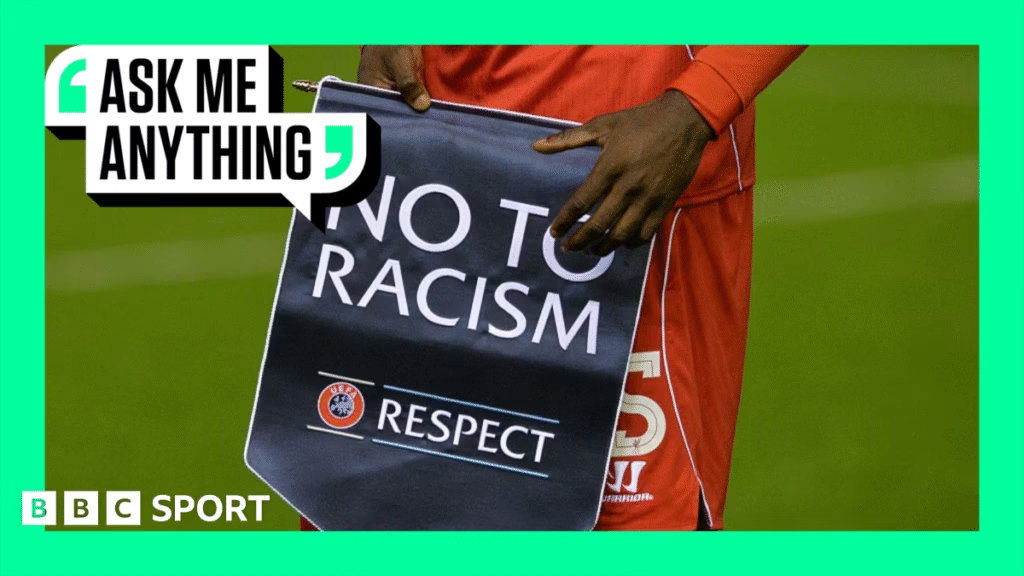Uefa established a three-step racism protocol to handle incidents of discrimination inside stadiums in 2009.
It is designed to give referees the power to halt matches, and even abandon games if racist behaviour continues.
If the referee becomes aware of a racist incident, they will:
-
Firstly stop the game. They will then request an announcement to be made over the public address system asking spectators to immediately stop any racist behaviour.
-
Then if it continues, stop the game for five to 10 minutes and take the players off the pitch while making another announcement.
-
And if it resumes after the second restart, the referee can abandon the game.
A match will only be abandoned once the security of the players and public has been assessed. The case is then referred to Uefa’s disciplinary authorities.
When has the protocol been implemented?
Image source,Getty ImagesImage caption,
England’s game against Bulgaria in Sofia in 2019 was halted twice by the referee
In 2019, England’s game against Bulgaria in Sofia in 2019 was stopped twice and officials threatened to abandon the match after Tyrone Mings and Raheem Sterling were subjected to racism.
Bulgaria were ordered to play two matches behind closed doors and fined 75,000 euros (£65,000) by Uefa.
England Under-21 players also suffered racist abuse by Serbia fans on two high-profile occasions, but the protocol was not implemented on either occassion.
Serbia’s FA was fined £16,000 at the 2007 European Championship in the Netherlands after their supporters racially abused England’s Nedum Onuoha.
And after the protocol was brought in, England defender Danny Rose was sent off for kicking the ball away in reaction to racist chants from the crowd in Krusevac during a Euros qualifier in 2012.
Rose said he was subjected to monkey chants throughout and had stones thrown at him.
This article is the latest from BBC Sport’s Ask Me Anything team.
What is Ask Me Anything?
Ask Me Anything is a service dedicated to answering your questions.
We want to reward your time by telling you things you do not know and reminding you of things you do.
The team will find out everything you need to know and be able to call upon a network of contacts including our experts and pundits.
We will be answering your questions from the heart of the BBC Sport newsroom, and going behind the scenes at some of the world’s biggest sporting events.
Our coverage will span the BBC Sport website, app, social media and YouTube accounts, plus BBC TV and radio.
More questions answered…
Discover more from 6up.net
Subscribe to get the latest posts sent to your email.


